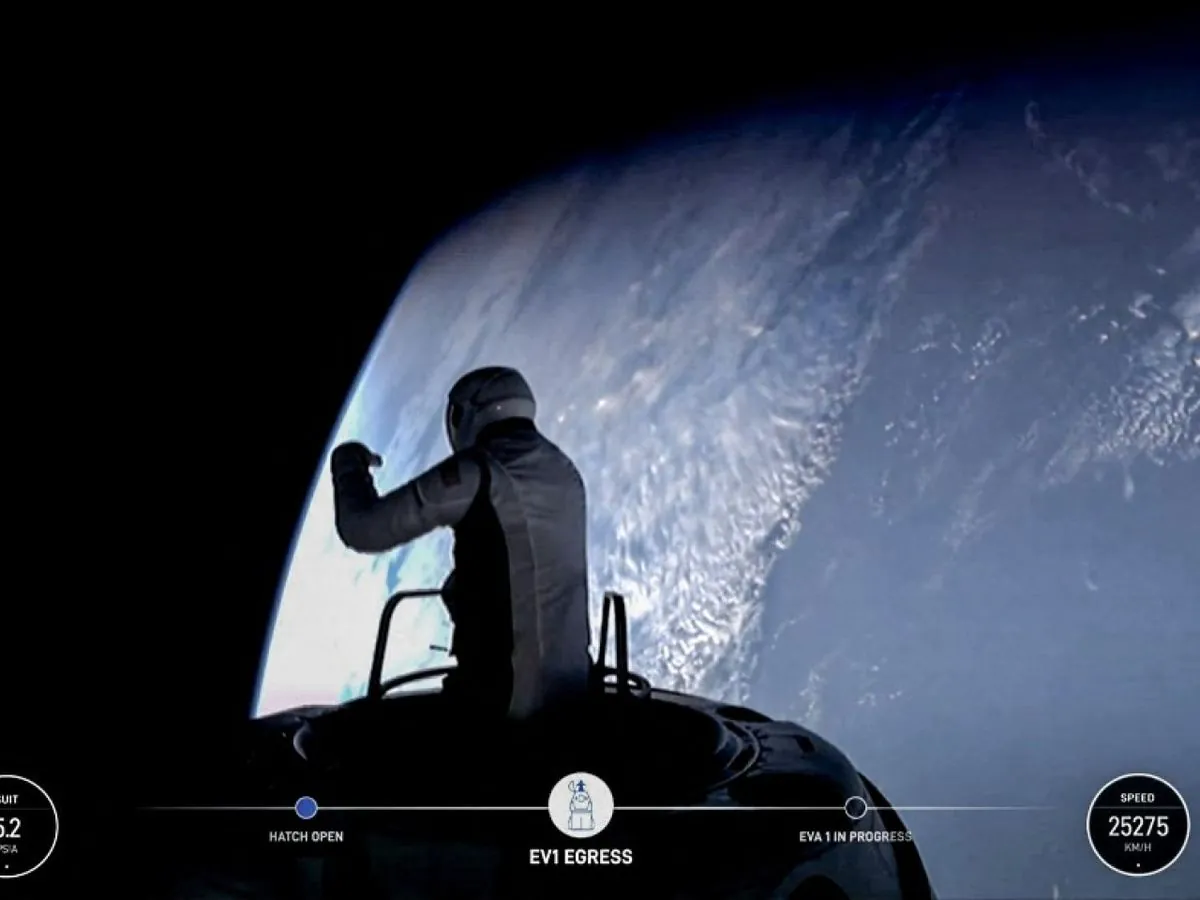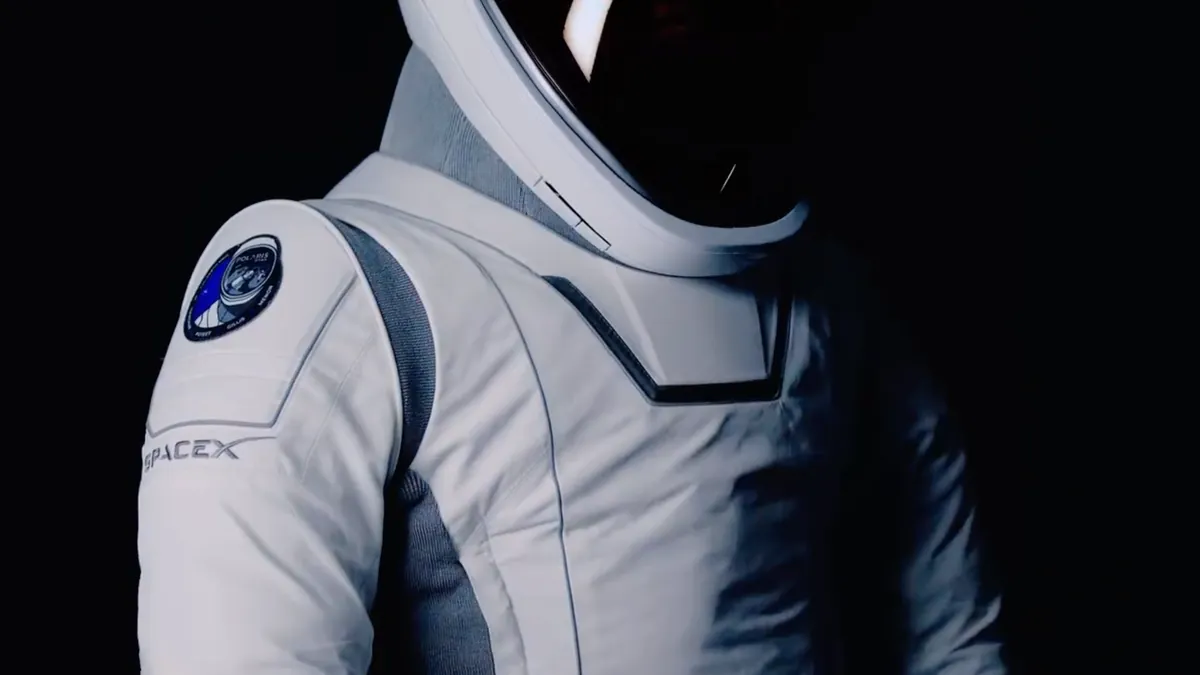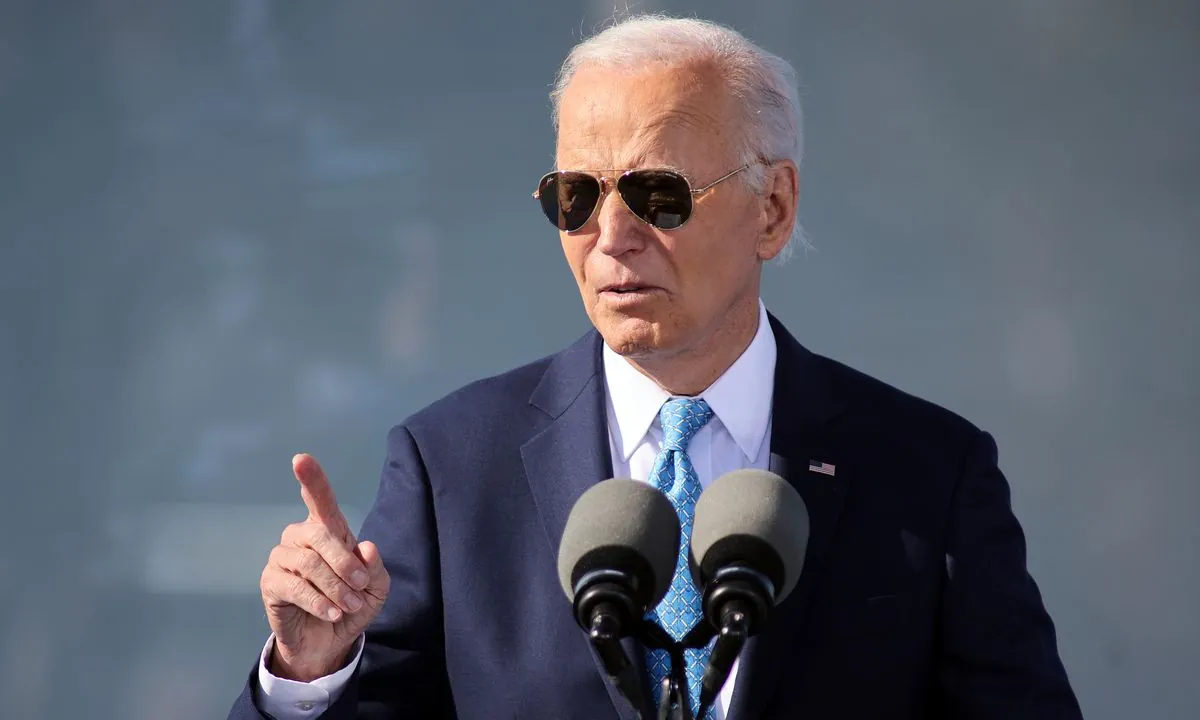Private Citizens Make History with First Commercial Spacewalk
Jared Isaacman and Sarah Gillis conducted the first private citizen spacewalk during the Polaris Dawn mission. The event marks a significant milestone in commercial space exploration, testing new equipment and reaching record altitudes.

On September 12, 2024, the commercial space industry achieved a significant milestone as Jared Isaacman and Sarah Gillis conducted the first spacewalk by private citizens. This historic event, part of the Polaris Dawn mission, showcased the growing capabilities of non-governmental entities in space exploration.
The spacewalk, initially planned for 2:23 a.m. Eastern time, was rescheduled to just before 7 a.m. Isaacman, a billionaire entrepreneur and adventurer, exited the SpaceX Dragon capsule first, followed by Gillis, a SpaceX engineer. Both crew members spent several minutes outside the spacecraft, tethered and using handrails for stability.
This extravehicular activity (EVA) served as a crucial test for SpaceX's new spacesuit, developed over two years. The suit is designed to protect astronauts from the harsh space environment, including extreme temperatures and radiation, while allowing maximum mobility.

Spacewalks, officially known as EVAs, are among the most challenging tasks astronauts perform. The first spacewalk was conducted by Soviet cosmonaut Alexei Leonov on March 18, 1965, followed by American Ed White's EVA during the Gemini program later that year. Since then, spacewalks have become essential for various space operations, with the longest single EVA lasting 8 hours and 56 minutes in 2001.
The Polaris Dawn mission, which launched on September 10, 2024, includes a four-person civilian crew: Isaacman, Gillis, Scott "Kidd" Poteet, and Anna Menon. The mission aims to reach an altitude of over 870 miles, surpassing any human spaceflight since the Apollo era, which ended in 1972.
"We all look forward to our friends at the Artemis program to take us to even greater heights."
This ambitious flight plan presented unique challenges, as the spacecraft had to navigate through orbits populated by thousands of satellites and pieces of space debris. Elon Musk, SpaceX founder, emphasized the precision required for these maneuvers.
The Polaris Dawn mission is part of a series of private space ventures funded by Isaacman. His previous flight, Inspiration4 in 2021, marked another milestone in civilian space travel. Future plans include a potential mission to service the Hubble Space Telescope and the first crewed flight of SpaceX's Starship vehicle.
As commercial entities continue to expand their role in space exploration, missions like Polaris Dawn are paving the way for increased private sector involvement. This shift is gradually eroding the long-held government monopoly on space activities, opening new possibilities for scientific research and technological advancement beyond Earth's atmosphere.


































